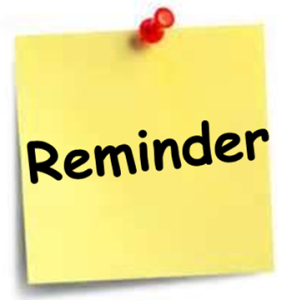While most companies agree that these five marketing tasks are important, this is the “real world” and things tend to fall through the cracks. Very few companies are doing all five as well or consistently as they could.
We need checks and balances and reminders, and as much automation as possible, which is why we wrote these five ways to use your CRM to get more referrals, recaptures, and testimonials
Your CRM (Customer Relationship Software) is great at handling routine tasks at pre-set intervals. Humans are not great at this – we’re easily bored with routines, distracted by the latest new idea, or busy with customers. Chances are, you’re paying good money for your CRM, so you might as well let it earn its keep!
1) Deliver Customer Satisfaction Surveys
 Most companies feel that customer satisfaction surveys are important, but they do become an afterthought. You’ve already delivered a great product or service, checked the delivery tasks off your list, and now you’re on to providing great service for your newest customers.
Most companies feel that customer satisfaction surveys are important, but they do become an afterthought. You’ve already delivered a great product or service, checked the delivery tasks off your list, and now you’re on to providing great service for your newest customers.
Your CRM can deliver your Customer Satisfaction Survey at regular intervals, and you can program it to continue to remind the customer a couple of times if they don’t complete it. (Hey, they get busy, too!)
2) Remind Your Staff to Do Follow Up Calls
![]() Some things can’t be done by a robot – making a follow up telephone call to new customer is one of those things that is best done by a person.
Some things can’t be done by a robot – making a follow up telephone call to new customer is one of those things that is best done by a person.
You can program your CRM to alert a member of your sales staff to make a phone call to follow up on a survey if the customer provides a particularly positive (or negative) responses. Or if they suddenly stop opening your emails. Or if they suddenly start visiting your website a lot.
These are the kinds of interactions that must be handled by humans, but an email from the CRM indicating that a customer may be truly unhappy, or may be willing to provide a testimonial or referral, is incredibly helpful.
3) Keep Your Brand Top of Mind
 Why don’t people refer business?
Why don’t people refer business?
Many times it’s because they simply don’t remember when the opportunity arises, or they don’t have your contact information handy to pass along to a friend or colleague.
People tend not to pay much attention to things that are going well as they run around putting out fires and doing things that require their attention. Your customers may be happy to provide a referral, but they don’t work for you, and they don’t run around thinking about your product unless you ask them to refer you, and remind them on a regular basis.
If you’re using your CRM to send regular email and/or direct mail communications to your clients, (such as a tip of the week, an informative newsletter, or some other regular communication)
they can always find your contact information in their real or virtual inbox!
4) Give Them Something to Talk About
 People in aviation love to talk. Make sure they’re talking about you! (In a good way, of course!)
People in aviation love to talk. Make sure they’re talking about you! (In a good way, of course!)
- Highlight customer success stories.
- Show before and after case studies of special projects.
- Tell stories about how your work impacts your community.
Every company has lots of great stories. Tell them!
5) Remind Them When It’s Time to Come Back
 If you sell a consumable product or know that there is an expected life cycle for your product or repeat cycle for your service, do what automotive repair companies do, and send a reminder or postcard just before you expect a customer to need your product or service again.
If you sell a consumable product or know that there is an expected life cycle for your product or repeat cycle for your service, do what automotive repair companies do, and send a reminder or postcard just before you expect a customer to need your product or service again.
If a customer typically gets their plane detailed every quarter, send a postcard and a couple of emails starting around the 11th week after a service is completed. This is easy to set up, and your CRM will remember, even if you don’t! (Most CRMs don’t do postcards directly, but they will remind you of the task, and some will even print the label for you.)
Long-term success in sales is not usually about brilliant performances in front of a fabulous slide show. (Although that can work in the short term!)
Long-term sales success, as part of our famous “long cycle marketing” process, really depends on how well your organization implements systems, creates habits and uses discipline to attend to those small interactions that build relationships. Let your CRM help you by doing the tedious reporting and heavy lifting for you.
} else {..
